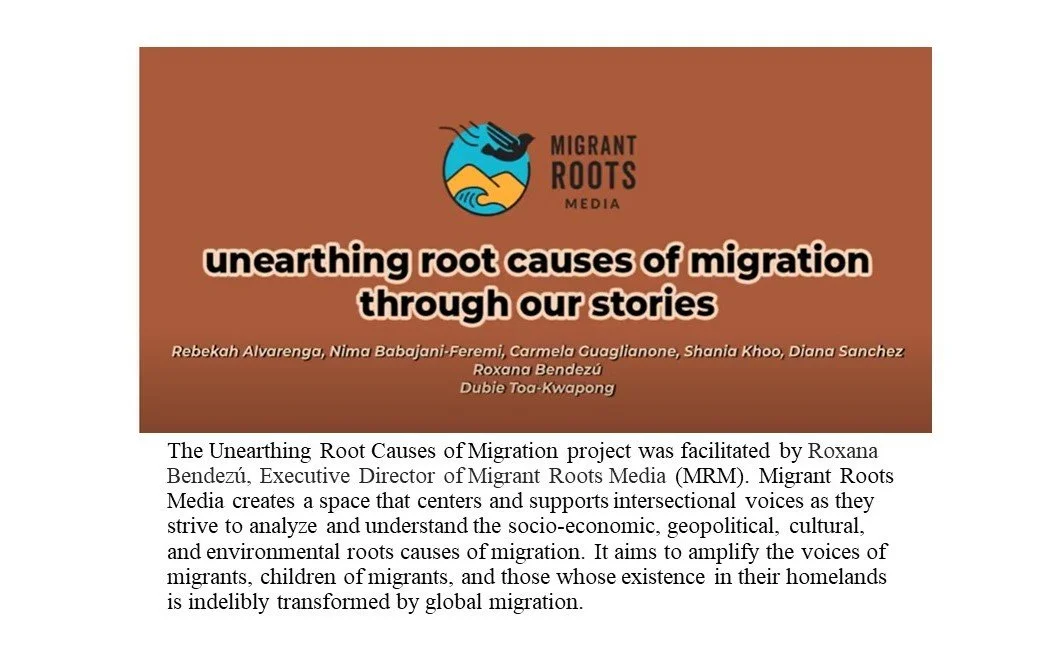Innovating the Summer Internship: Interdisciplinary Team-based Humanities Research
By Amanda Starling Gould
Amanda Starling Gould, PhD is the Senior Program Coordinator for Educational Programs & Digital Humanities and Story+ Co-Director at the Franklin Humanities Institute at Duke University. Story+ is co-directed by Dr. Jules Odendahl-James, Director of Academic Engagement, Humanities at Duke University.
The focus on SAGE Methodspace in April 2022 is on research outside the walls of academia. Internships have traditionally served as a key tool for helping students translate classroom lessons to practice. The Story+ program at Duke University introduces a new internship model that fuses academic humanities research with applied problem-solving, while equipping students to work in teams and tackle complex projects.
The Story+ program at Duke University brings together a vibrant network of undergraduate researchers, graduate fellows, faculty project leads, local partners, and campus units to collaborate each summer on critical social issues. This six-week full-time paid summer program combines hands-on interdisciplinary arts and humanities research with innovative storytelling to create dynamic outcomes for diverse public audiences. In Story+, students are organized into small project teams and have the opportunity to participate in a flexible mini curriculum on research methods and storytelling strategies. Team projects are led by faculty, staff, university units, and community partners, and are mentored on a daily basis by graduate students.
Students collaborate with professors, professionals, and experts—including artists and activists—on projects tackling issues in history, healthcare, human rights, feminism, race relations, racial and environmental justice, dance, disability, social media, music, protest, policy, artificial intelligence, and migration. They work in the archives, in the field (and forest) (and farm), in concert with current events and in multiple languages to produce impressive outcomes in the form of physical exhibits, websites, podcasts, graphic memoirs, videos, translations, reports, curricula, 3D-printed objects, digital projects, incredible research poetry, and works-in-process.
Graduate and undergraduate students develop skills and confidence; they gain practical experience in teamwork, project management, mentorship, qualitative and quantitative research, digital and public humanities methods, and storytelling. Productive elasticity within team structure allows students to find their own research groves within the context of the project. Many move onto longer-term project-based coursework, to winning project awards and completing award-winning research, to co-authoring scholarly publications and publishing articles and podcasts on nationally-recognized platforms, and into careers in- and outside the academy. All while engaging urgent societal questions and building knowledge in the service of animating the past and articulating more just futures.
“The ability to recognize what is interesting in a research archive, articulate why one finds it compelling, and ultimately situate it in a broader social narrative is foundational to any research practice regardless of discipline, and one I’ve observed the Story+ program achieve exceptionally well in terms of outcomes for undergraduate researchers from a variety of humanistic and scientific fields. In my view, the stories we tell now about what has come before, what we’re living in and what is yet to come will largely determine the shape of the societal shifts we’ll experience in the coming years.” Quran Karriem, Duke PhD Candidate, Story+ Graduate Project Manager 2019 and Story+ remote RA 2021
In 2020, the pandemic forced us to rapidly redesign our very in-person summer program to one delivered fully online. Instead of simply translating the program from in-person to on-line, we wanted to redesign the program with and for its new context. This process was an education in change, in flexibility, in experimentation, and we celebrated the opportunity to expand our practice and reiterate our values into new modalities.
Our projects—which were proposed and selected months before—were tweaked, and new projects were devised. We brought in a new project on Digital Ethnography and Digital Quarantined DJs, for instance, and one on the history of local Pandemic Responses from 1918 to COVID19, and several already-established projects added new dimensions—a project interviewing healthcare workers on Artificial Intelligence in Healthcare certainly looked different in March 2020 than it did when proposed several months before.
We also asked new questions: How do we facilitate and foster research experiences for all bodies, in all modalities? What does it mean to engage remotely with our research, our research objects, and our research colleagues?
Supporting New Projects
Story + interns and project partners
To support these new projects, questions, and modes of work, we created a range of support systems, learning architectures, community-building opportunities, cross-project conversations, tools and modes for digital collaboration and communication. We had invaluable support services across campus, from health support to tech support. We built time and space for mentorship and consultation. We offered office hours, with us at Story+ and with our expert colleagues who so generously shared with us their time and energy. We created a virtual skills boot camp and weekly intellectual community-building sessions with a range of content topics and delivery mechanisms including full-cohort synchronous content, team-based synchronous content, and fully asynchronous content. We expanded our digital assessment and evaluation.
We developed for the first time an internal meta Story+ team that observed how the teams were working together in order to tell stories about the forms of embodied practice and collective presence that Story+ enabled despite, and because of, our new virtuality. As I said at the start, in the past, Story+ students have searched through archival boxes, have gathered oral histories, and have analyzed cultural materials—from primary sources to Twitter tweets. They’ve written graphic memoirs, curated exhibits, designed websites, and recorded audio podcasts. It shouldn’t come as a surprise that they continued to do all these things online.
Success Stories
Story + intern at work
100% of students in our post-program survey said they’d recommend the program to a friend. As it worked so well in 2020, we went online again in 2021. Our pandemic years were our most innovative yet, and we’re carrying all we’ve learned with us into 2022 to develop, for the first time, a fully hybrid experience. Our quick inventive transition opened the opportunity for us to pilot ways of working and researching that will create a more inclusive, more impactful program going forward. What we do at Story+ is design opportunities for experimentation in the humanities, for all students to participate in meaningful team-based hands-on, even if remote, critical interdisciplinary exploration. We provide the structures and supports and then allow teams to work their magic. And they do.
“I honestly don’t think I’ve come across the kind of program that allows undergraduates to do summer research in humanistic and social science disciplines. This is the kind of thing that I looked for as an undergrad… I watched my STEM friends be able to do summer research with professors and build their lab skills in that way…there was kind of a sense from the beginning that this wasn’t purely about producing work that would be siphoned in the ivory tower, producing work that would circulate only in this sort of limited space…but producing work that is meant to be shared with community.” Dubie Toa-Kwapong, Duke PhD Candidate, Story+ remote Graduate Project Manager 2020 and 2021.
Story+ remained and remains a rigorous, robust interdisciplinary humanities internship program with accomplished PIs, highly-skilled graduate mentors, imaginative projects, an impressive undergraduate cohort, dedicated directors and support staff, and a now fully-formed fully-hybrid remote and in-person collaborative research architecture.
You can read more about our program and projects online at https://fhi.duke.edu/programs/story, and see our research stories on our Youtube Page.
















The Director and Assistant Director of the Bass Connections program at Duke University share lessons learned and open access resources for team success in interdisciplinary collaborative research.